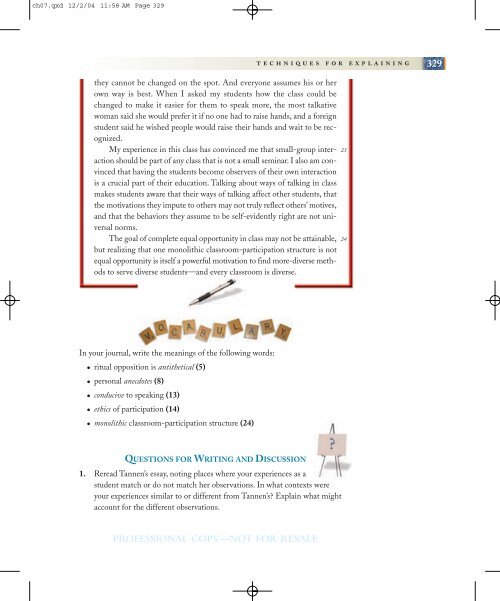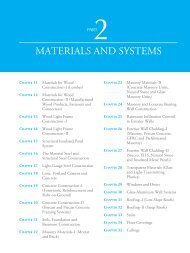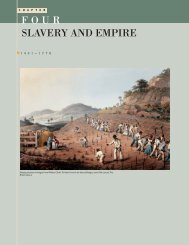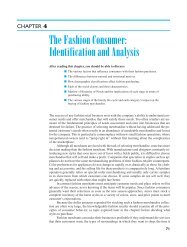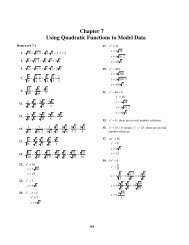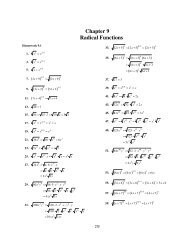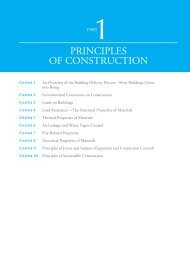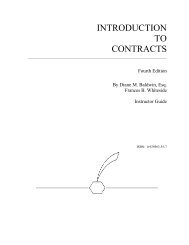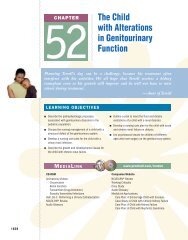A prolific painter of portraits before and after the French Revolution ...
A prolific painter of portraits before and after the French Revolution ...
A prolific painter of portraits before and after the French Revolution ...
Create successful ePaper yourself
Turn your PDF publications into a flip-book with our unique Google optimized e-Paper software.
ch07.qxd 12/2/04 11:58 AM Page 329<br />
techniques for explaining<br />
329<br />
<strong>the</strong>y cannot be changed on <strong>the</strong> spot. And everyone assumes his or her<br />
own way is best. When I asked my students how <strong>the</strong> class could be<br />
changed to make it easier for <strong>the</strong>m to speak more, <strong>the</strong> most talkative<br />
woman said she would prefer it if no one had to raise h<strong>and</strong>s, <strong>and</strong> a foreign<br />
student said he wished people would raise <strong>the</strong>ir h<strong>and</strong>s <strong>and</strong> wait to be recognized.<br />
My experience in this class has convinced me that small-group interaction<br />
should be part <strong>of</strong> any class that is not a small seminar. I also am convinced<br />
that having <strong>the</strong> students become observers <strong>of</strong> <strong>the</strong>ir own interaction<br />
is a crucial part <strong>of</strong> <strong>the</strong>ir education. Talking about ways <strong>of</strong> talking in class<br />
makes students aware that <strong>the</strong>ir ways <strong>of</strong> talking affect o<strong>the</strong>r students, that<br />
<strong>the</strong> motivations <strong>the</strong>y impute to o<strong>the</strong>rs may not truly reflect o<strong>the</strong>rs’ motives,<br />
<strong>and</strong> that <strong>the</strong> behaviors <strong>the</strong>y assume to be self-evidently right are not universal<br />
norms.<br />
The goal <strong>of</strong> complete equal opportunity in class may not be attainable,<br />
but realizing that one monolithic classroom-participation structure is not<br />
equal opportunity is itself a powerful motivation to find more-diverse methods<br />
to serve diverse students—<strong>and</strong> every classroom is diverse.<br />
23<br />
24<br />
In your journal, write <strong>the</strong> meanings <strong>of</strong> <strong>the</strong> following words:<br />
• ritual opposition is anti<strong>the</strong>tical (5)<br />
• personal anecdotes (8)<br />
• conducive to speaking (13)<br />
• ethics <strong>of</strong> participation (14)<br />
•<br />
monolithic classroom-participation structure (24)<br />
QUESTIONS FOR WRITING AND DISCUSSION<br />
1. Reread Tannen’s essay, noting places where your experiences as a<br />
student match or do not match her observations. In what contexts were<br />
your experiences similar to or different from Tannen’s? Explain what might<br />
account for <strong>the</strong> different observations.<br />
PROFESSIONAL COPY—NOT FOR RESALE


